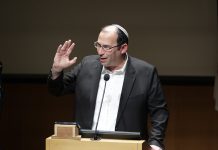 Rev. Charles Moore might not be a household name, but some are praising him for going as far as he could for his convictions. Earlier this year, the pastor got out of the car in a shopping mall in Texas and set himself on fire. The retired preacher didn’t survive the incident, and it didn’t make the splash that he hoped it would. But now, the national media is starting to catch on to his sacrifice and are reviewing the reasons that he would go so far to make his point.
Rev. Charles Moore might not be a household name, but some are praising him for going as far as he could for his convictions. Earlier this year, the pastor got out of the car in a shopping mall in Texas and set himself on fire. The retired preacher didn’t survive the incident, and it didn’t make the splash that he hoped it would. But now, the national media is starting to catch on to his sacrifice and are reviewing the reasons that he would go so far to make his point.
According to the Huffington Post, Pastor Moore was trying to send a message against racism and in favor of social justice. Rev. Jeff Hood says that “Reverend Moore thought this was going to be a whole lot bigger of a deal than it turned out to be. He expected it to make national news.”
Pastor Moore left behind a note for the police after the act, stating that he has been in pain for decades over racial discrimination, explaining how it harmed his soul. He grew up in Grand Saline, Texas, and says that he saw some unspeakable things during his years there.
“I will soon be 80 years old, and my heart is broken over this. America, and Grand Saline… have never really repented for the atrocities of slavery and its aftermath. What my hometown needs to do is open its heart and its doors to black people as a sign of the rejection of past sins,” the pastor said.
The pastor also chastised the United Methodist Church for not reversing its policies that he claimed were homophobic and unfairly promoted the death penalty.
“This decision to sacrifice myself was not impulsive: I have struggled all my life (especially the last several years) with what it means to take Dietrich Bonhoeffer’s insistence that Christ calls a person to come and die seriously. He was not advocating self-immolation, but others have found this to be the necessary deed, as I have myself for some time now: it has been a long Gethsemane, and excruciating to keep my plans from my wife and other members of our family.”
Rev. Jack Albright worked with Pastor Moore on civil rights initiatives during the 1960s and agrees that he was quite convicted in his beliefs.
“When people are raised and spend their life in an atmosphere of segregation, it’s very threatening to make changes. The issue was how hard do you push, especially if you are going to create a lot of confrontation.”
The deceased former preacher says that he was hopeful that his death might not be in vain. Instead, he was expecting that there would be action inspired by his sacrifice to make the country into a better place. While the action hasn’t been what he hoped it would be, it has certainly drawn attention and made people think. The United States is often cited by other countries around the world for being responsible for a series of human rights violations that relate to race. High incarceration rates for blacks, along with severe black unemployment and unequal educational systems have long been a national embarrassment for the US.
“I would much prefer to go on living and enjoy my beloved wife and grandchildren and others, but I have come to believe that only my self-immolation will get the attention of anybody and perhaps inspire some to higher service,” he said in his final note, right before giving his life shortly before his 80th birthday.
You can read more about Pastor Moore here.
google.com, pub-6336011652228911, DIRECT, f08c47fec0942fa0








